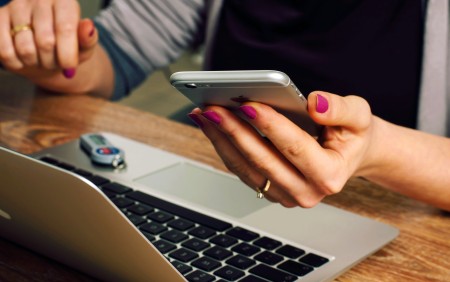How to Protect Your Money While Using Mobile Payment Apps
May 13, 2013 - mediadealer - Uncategorized - 2,162 views
Mobile payment apps make transferring money an easy process. However, it’s important to keep your personal finance information safe while using them. 
Following these tips will help keep your information safe:
1. Only use official mobile payment apps. The source of your apps matters. You want to avoid the fake ones.
* Experts recommend obtaining the apps directly from the stores where you shop and not a random blog or sales page. Stores like Google Play and the Apple store also have official apps you can purchase.
* Fake apps are floating around the Internet, so you’ll have to be careful.
2. Get two-factor authentication. This type of authentication offers more protection for your finance and personal information.
* Two-factor authentication is an extra step during the log-in process. After you sign up for it, you’ll have to enter your password plus a special code to get access to the app. The special code is usually sent via a text. This additional layer of authentication depends on your mobile phone number.
3. Make your phone safer. Have you set up a pin and password for your phone? Making your mobile device safer is crucial to keeping your information from hackers.
* It’s important to set up the pins, codes, and passwords before accessing the money apps.
4. Be careful with public wi-fi. It may be best to save your mobile money app transactions for a secure network.
* Public wi-fi is convenient, but it can be hacked. This could leave you vulnerable to people who want to get your personal and financial data.
* Checking the network for security is essential before using an app to transfer money.
* For an extra layer of protection, consider turning off wi-fi in a public area. This way you’re not tempted to use it by mistake because you forgot.
5. Pay attention to your statements. The apps are easy to use and make transferring money a fast process, but you still have to pay attention to the statements and ensure each transaction is correct. You may want to log in frequently to check for updates.
6. Report issues immediately. Waiting for issues to resolve on their own is not the best plan for mobile payment apps. If you see any transactions you don’t recognize on your statement or account, report them immediately. Transactions may be stopped before a hacker gets hold of your money. Also, report it to your bank.
7. Consider a phone block app. Smartphones are a lifeline, so losing a phone can affect your business, family, and life. What would you do if you lost your phone?
* You can download apps that will block access to your phone if it disappears or is stolen. These apps require you to enter a code or password from another device, and your missing smartphone is locked. This will add another layer of protection to your personal data.
8. Check for updates often. Do you have automatic updates turned on? It’s important to keep the operating system on your mobile device current. Automatic updates will make the process easier, or you can do it manually.
* Hackers search for vulnerabilities in older operating systems all the time, so keeping an updated phone is a good idea. You’ll have improved speed and the latest patches to stay safe.
Mobile payment apps are an easy way to send money. However, you’ll have to be careful while using them to protect your private information. Using these tips will enable you to take advantage of the convenience while bringing you greater peace of mind.
Other articles similar to: How to Protect Your Money While Using Mobile Payment Apps
Time Management Tips For The Busy Person
Lots of us do what we can to get the largest number of tasks done each day, only to still fall short. If you wish to learn better ....
Tips To Buying A New Car Or Truck
Are you in the next step and purchasing a new car or truck? Here are some ways to ensure the process is easier and a little more f....
Build Customers And Profits Through Mobile Marketing
Okay, let’s face it! A mobile marketing strategy is one of the most promising approaches in the online business world, but findi....
Top 10 Highly Effective Personal Finance Habits
A big income and fancy degree do not guarantee financial abundance. Effective money habits are an important part of achieving fina....
You must be logged in to post a comment.
